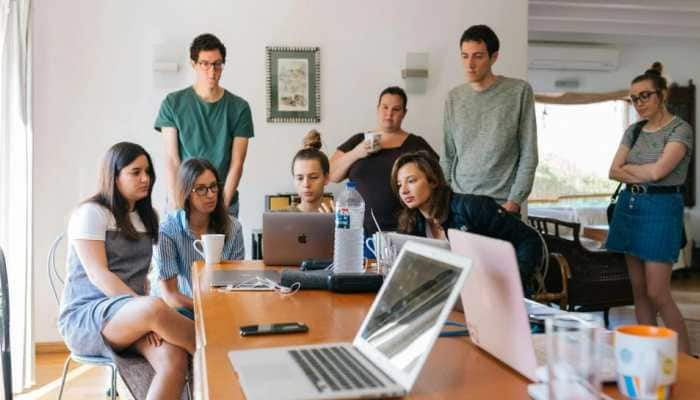Delhi HC refuses to allow doctor to sit for exam after excessive leaves due to COVID-19
Justice Prateek Jalan dismissed the petitioner doctor's plea for condonation of leaves and said that the court's decision did not emanate from a lack of gratitude for the service rendered by doctors during the pandemic, but from the limitations under the regulations governing the course.
- The petitioner was working with the burns and plastic surgery department
- The candidate was permitted to take only a total of 102 days as leave during the three years
Trending Photos
) File Photo
File Photo New Delhi: The Delhi High Court has refused to allow a doctor, who is pursuing a super-specialty course, to sit for his end-term examination by condoning his "excessive leaves" on account of contracting COVID-19 while treating patients, saying that the requirements of training and attendance in professional courses of this nature are beyond its remit.
Justice Prateek Jalan dismissed the petitioner doctor's plea for condonation of leaves and said that the court's decision did not emanate from a lack of gratitude for the service rendered by doctors during the pandemic, but from the limitations under the regulations governing the course.
The petitioner was working with the burns and plastic surgery department of a medical institute here and pursuing the three-year M.Ch. Degree course.
Since a candidate was permitted to take only a total of 102 days as leave during the three years, the petitioner was rendered ineligible to sit for the end-term examination after he availed 226 days of leave, 194 days being medical leave due to COVID-19.
The institute told the high court that the applicable regulations, that is the Postgraduate Medical Education Regulations, 2000 by the Medical Council of India as well as its own ordinances, do not provide for any condonation of excess leaves.
The judge said that the petitioner is a senior resident seeking a super-specialty qualification which is principally earned by participating in clinical activity and therefore, the training requirement cannot be divorced altogether from the question of excessive leave.
The petitioner was compelled, by reason of his illness, to take approximately six months' leave from July, 2020 to January, 2021, which is much higher than the permitted maximum. Where the training is largely achieved on the job, the training requirement cannot be divorced altogether from the question of excessive leave.
To the extent that the petitioner availed of excessive leave, howsoever legitimate the cause, his super-specialty training remains yet incomplete in terms of the Regulations and the Ordinance, the court said.
The court added that a balance has to be struck between the petitioner's predicament, and the assessment of the academic institutions concerned that he is not properly qualified under the applicable regulations.
The requirements of training and attendance, particularly in professional courses of this nature, are generally beyond the remit of the writ court.
Academic institutions are generally best placed to adjudge these issues, and their assessment is vulnerable to interference only if vitiated by manifest unreasonableness or arbitrariness. The view taken by the University in the present case cannot be so characterised, it stated.
Despite much sympathy with the situation in which the petitioner finds himself, I have come to the conclusion that he cannot prevail. This conclusion does not emanate from any lack of gratitude for the service rendered by doctors and other health-care professionals in the course of this pandemic, but from the limitations of the writ court in the face of expert opinion regarding the conditions which the Regulations, and the University's Ordinances, impose, it said.







)
)
)
)
)
)
)
)
)
)
